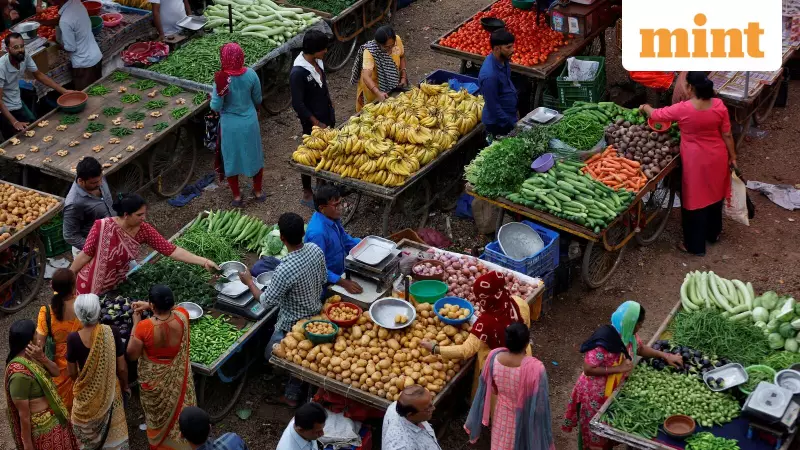
Record Low Inflation Hits Indian Economy
India's retail inflation rate likely plunged to an unprecedented low of 0.3% in October 2025, according to a Mint survey of 16 leading economists. This remarkable figure represents the lowest reading since the current data series began in January 2014, signaling a dramatic shift in the country's price stability landscape.
What's Driving the Inflation Collapse?
Three primary factors converged to create this historic low inflation environment. First, food prices continued their deflationary trend, with vegetable costs showing significant sequential declines. Second, the statistical phenomenon of a favourable base effect played a crucial role, as inflation had surged to 6.2% in October 2024 from 5.5% the previous month. Third, recent GST reductions on several consumer basket items contributed to pulling down overall price levels.
The economists participating in the poll projected inflation within a narrow band of 0.16% to 0.58%, indicating consensus around the ultra-low reading. This marks the third time in four months that inflation has fallen below the Reserve Bank of India's lower tolerance limit of 2% within the 2-6% target band.
Core Inflation Presents Contrasting Picture
While headline inflation reached record lows, economists expressed concern about core inflation potentially rising to 4.5-4.7% in October. This underlying inflation measure, which excludes volatile food and energy prices, primarily faced upward pressure from the sharp rally in gold prices, highlighting the complex nature of current price dynamics.
Radhika Rao, economist at DBS Bank, noted that "October is likely to mark the trough in the current cycle, with base effects expected to see inflation resume its gradual climb in the coming months." She further cautioned that unseasonal rains might affect fresh food perishables supply, while increased import duties on selected pulses suggest that the bulk of food disinflation is likely behind us.
Policy Implications and Future Outlook
The disinflationary trend has significant implications for monetary policy. Most economists anticipate limited room for additional rate cuts, with expectations of no more than one rate reduction in the near term. Dhiraj Nim of ANZ Bank explained that while inflation might undershoot RBI forecasts, its imminent reversal in FY27 means "there is limited additional monetary policy space to support growth."
Aditi Nayar, chief economist at Icra, emphasized that the October reading reflects deeper deflation in food and beverages alongside the impact of GST reductions. The official inflation data, scheduled for release on Wednesday, will provide confirmation of these projections and shape future policy decisions.





